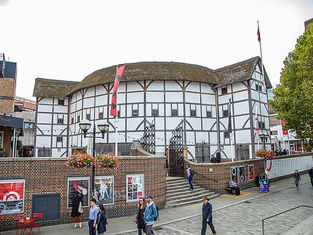top of page
Articles


Parliamentary Sovereignty and EU Membership: Did Brexit Regain Parliament’s Sovereignty?
Introduction The principle of parliamentary sovereignty has been a long-held tenet of the UK’s unwritten constitution. AV Dicey outlined its features in 1885. However, 87 years later, the UK became a member of the European Economic Communities, with the European Communities Act 1972 providing the domestic legal basis for EU law in the UK. Lord Denning described EU law as ‘an incoming tide […] [that] cannot be held back’.[1] However, others, such as Professor Phillip Norto

Katie Ann Twelves
28 min read


A Radical’s Elegy for England: Darcus Howe and the White Tribe
Dog-races, football pools, Woolworth’s, the pictures, Gracie Fields, Wall’s ice cream, potato crisps, Celanese stockings, dart-boards, pin-tables, cigarettes, cups of tea, and Saturday evenings in the four ale bar.[1] This rapid-fire enumeration of distinctive features of Englishness, one of George Orwell’s recurring party-tricks, seems today a tall order. What is it to be English? Those like Tory MP Robert Jenrick rely on inane tautologies: English identity is simply English

Jack Graveney
26 min read


People Not Boats: Sacrificing Human Rights on the Altar of the Hostile Environment in the UK
If you tolerate this, your children will be next! Manic Street Preachers, 1998 Introduction The issue of immigration and human rights law, or more precisely, the human rights of people on the move, has become one of the most urgent challenges for many Western societies. Syrian refugees walking across Europe in 2015 almost faded away in the collective memory. They were replaced by the images of people clinging on the planes leaving Kabul, a mass exodus from Ukraine, people

Zrinka Bralo
27 min read


Lady in Blue, Trafalgar Square, London’s Fourth Plinth Commission for 2026: In Conversation with Tschabalala Self
Tschabalala Self (b. 1990 Harlem, USA) lives and works in Hudson Valley, New York. Tschabalala is an artist and builds a singular style from the syncretic use of both painting and printmaking to explore ideas about the black body. She constructs depictions of predominantly female bodies using a combination of sewn, printed, and painted materials, traversing different artistic and craft traditions. The formal and conceptual aspects of Self's work seek to expand her critical in

Gabriella Kardos
5 min read


The Chilling Effect of the Law on Election Finance
‘Democracy cannot succeed unless those who express their choice are prepared to choose wisely. The real safeguard of democracy,...

Grace Houghton, Mishcon de Reya
11 min read


Leave the Empire Windrush at the Bottom of the Ocean: In Conversation with Gus John
Gus John is an award-winning writer, education campaigner, and lecturer. His work spans the fields of education policy, management, and international development. Since the 1960s, John has been active in issues surrounding education and schooling in Britain’s inner cities, and he has worked in several universities including the University of Strathclyde in Glasgow, the UCL Institute of Education, the University of London, and Coventry University. He is a respected public spea

Donari Yahzid
13 min read


The Barriers to Family Migration: In Conversation with Helena Wray
Helena Wray is a professor of migration law at the University of Exeter. Her extensive experience in this area spans several...

Eleanor Taylor
31 min read


Resistance in Babylon: Nurturing Hope and Creativity Amidst the Storm of the UK’s Immigration Challenges
Ali Ghaderi is a young refugee from Iran. He arrived in the UK five years ago through a family reunification scheme which was available...

Lerato Islam and Ali Ghaderi
15 min read


Neither Maid nor Man: In Conversation with Alex Garden
A snapshot in time of English folk music, queer visibility, and gender non-conformity Alex Garden is a fiddle player, guitarist,...

Abi Dore
23 min read


A Racial Justice Approach to Mitigation within Sentencing in the UK
A case for the enhanced pre-sentence report in England and Wales, exploring how the Canadian approach to racially disproportionate...

Ife Thompson
15 min read


The UK’s Rwanda Asylum Plan: Bad for Refugees, Bad for Rwanda
Like many other Rwandans, I heard for the first time of the United Kingdom (UK)’s plan to send its unsolicited asylum seekers to Rwanda...

Victoire Ingabire Umuhoza
36 min read


Where the Thames Meets the Sea
To stand at the edge of the sea, to sense the ebb and flow of the tides, to feel the breath of a mist moving over a great salt marsh, to...

Julian Kirwan-Taylor
11 min read


The Ministerial Code: a scarecrow of the law?
We must not make a scarecrow of the law, Setting it up to fear the birds of prey, And let it keep one shape, till custom make it Their...

Shulamit Aberbach, Mishcon de Reya
11 min read


Karl Heinz Bohrer’s ‘A Little Pleasure in Decline. Essays on Britain’
Karl Heinz Bohrer’s A Little Pleasure in Decline. Essays on Britain. [1] My friend Karl Heinz Bohrer died on 4 August 2021. He was seen...

Giles MacDonogh
14 min read


Iconoplastic: An Institutional Reform Agenda
The last few months, in particular the furore over Partygate,[1] have scarred the reputation of many of Britain’s most vital...

Polly Mackenzie
14 min read


The Problem of Sieving Related Party Transactions in India and the UK
I. Introduction The rise of family-owned businesses has resulted in the clustering of several companies and their subsidiaries under the...

Varda Saxena
20 min read


The Fight for Survival Fifty Years On—A Brief Synopsis on Law Centres in the UK
Introduction Law centres are providers of legal aid and have been in existence since the early 1970s. Their main role has been to assist those that reside within their local communities. They specialise predominantly in social welfare or ‘poverty’ law as their legal representatives possess detailed knowledge about the problems their local residents face. This article is divided into timeframes and will consider the development of law centres in the UK from 1945 to 2021. Betwe

Ayesha Riaz
33 min read


A Note on the Controversy concerning Eric Gill
On 12 January 2022, there was an attempt to destroy, or at least damage, the statue of Prospero and Ariel installed outside the BBC’s...

Peter Brooke
25 min read


Democracy, Constitutionalism, and the Commonwealth: In Conversation with Professor Vernon Bogdanor
Currently Professor of Government at King’s College London, Professor Vernon Bogdanor is a leading expert in British constitutional...

Teresa Turkheimer
25 min read


The Forgotten Question: Clarifying the Extent of the Protection Afforded by Actual Occupation under the Land Registration Act 2002
I. Introduction Issues of priority are at the centre of English land law. Where a plot of land in which a third party has an interest is transferred from one party to another, a conflict arises between this third party and the transferee: whose interest has priority? If push comes to shove, can the transferee prevent the third-party interest holder from exercising her right, or is the third-party interest-holder entitled to enjoy her interest in the face of the transferee’s o

Fred Halbhuber
31 min read


The Cis-normativity of Consent in Deceptive Sexual Relations
1. Introduction The criminal law continues to grapple with the concept of ‘deceptive sex’ and struggles to draw the appropriate parameters around the provisions on consent contained within the Sexual Offences Act 2003 (henceforth, ‘the SOA’). Particularly notable in this regard have been cases involving ‘gender fraud’, wherein the defendant (D) is alleged to have deceived the complainant (V) as to their gender in order to procure sexual relations. This was found to be the cas

Juana de Leon
42 min read


All the Law’s a Stage! Shakespearean Insights and their Resonance Today
Shakespeare understood much about the role of law in society, possibly thanks to his direct links with London’s Inns of Court. The Inns...

The Rt Hon Lady Arden
26 min read


Law in a Time of Crisis
The United Kingdom has experienced two major political crises in the last five years. Brexit and COVID-19 are crises of very different kinds. But they have a significant feature in common whose implications will live with us for a long time. They are milestones in the demise of liberal democracy. The model which will replace liberal democracy is already emerging. It will be more authoritarian and less dependent on Parliamentary deliberation. It will view our society as a gr

The Rt Hon Lord Sumption
11 min read


John Morley and India: Anti-Imperialist Thought in Practice
The recent upsurge of interest in the history of the British Empire has produced a wealth of literature that often presents empire and imperialism in a hegemonic light, couched in a dichotomy that sets the ‘oppressor’ against the ‘oppressed’, the ‘coloniser’ against the ‘colonised’, and so on. Underpinning fashionable postcolonial discourse, this binary terminology can obscure important nuances of political thought in its proper historical context, such as how prominent figur

Matthew Fisher
31 min read
bottom of page

